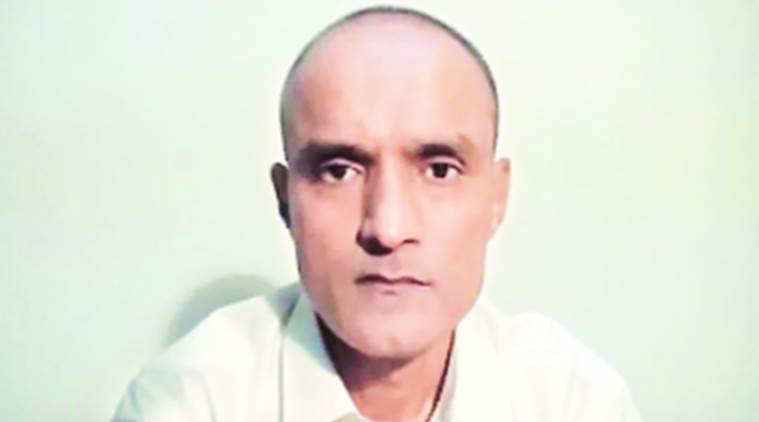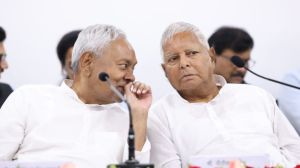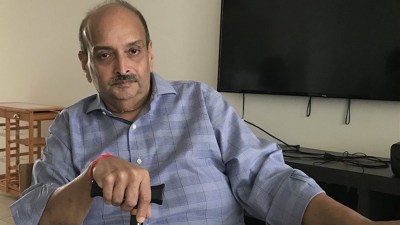Indian consular officers who were allowed access to Kulbhushan Jadhav, who is on death row in Pakistan on charges of spying, had to leave the meeting as the consular access provided by Pakistan was “neither meaningful nor credible”, Ministry of External Affairs official spokesperson Anurag Srivastava on Thursday.
Pakistan also did not allow Indian diplomats to carry the “Power of Attorney” for Jadhav to sign, a legal document that would have allowed the Indian government to hire a lawyer to represent Jadhav’s case in Pakistan’s courts, The Indian Express has learnt.

New Delhi now has two options before itself — either approach Pakistan’s courts or go back to the International Court of Justice (ICJ) and appeal for Islamabad’s non-implementation of its orders.
Story continues below this ad
Giving a complete account of the consular meeting and the run-up to it, MEA spokesperson Srivastava said, “Over the past year, India has requested Pakistan more than 12 times to provide unimpeded, unhindered and unconditional consular access to Kulbhushan Jadhav, who remains incarcerated in Pakistani custody since 2016.”
“This consular access is of utmost importance, as it is the basis for a process of effective review and reconsideration ordered by the (ICJ) in July 2019 of the conviction and sentence of Jadhav by a Pakistani military tribunal,” he said.
In May 2020, Pakistan passed an Ordinance, which envisaged the Consular Officer of the High Commission of India filing a petition before a High Court seeking a review and reconsideration of the death sentence.
“Any conversation between them (the consular officials and Jadhav) must necessarily take place in privacy and without the presence of any Pakistani official or recording by Pakistan. It is only then Shri Jadhav can speak freely…,” he said. India had got consular access in September 2019, but it was “not unhindered and unimpeded”.
Story continues below this ad
After India recently requested the Pakistani side for an unimpeded, unhindered and unconditional consular access to Jadhav, the Pakistan side agreed to grant access on July 16.
Giving a detailed account of the meeting, Srivastava said, “…Pakistani officials with an intimidating demeanour were present in close proximity of Jadhav and the consular officers despite the protests of the Indian side. It was also evident from a camera that was visible that the conversation with Jadhav was being recorded. Jadhav himself was visibly under stress and indicated that clearly to the consular officers…,” he said, adding that “after lodging a protest, they left the venue”.
The spokesperson said Pakistan had not only violated its assurance to the ICJ, but failed to act in accordance with its own Ordinance.
Last week, Islamabad said Jadhav had refused to file an appeal in the Islamabad High Court (IHC) against his conviction by the military court.
Story continues below this ad
An ordinance was promulgated by the Pakistan government on May 20, which allowed the Indian government, Jadhav and his legal representative to file a review petition in IHC within 60 days. The deadline expires July 19.
In September last year, India’s Acting High Commissioner in Islamabad Gaurav Ahluwalia met Jadhav in the presence of Pakistani officials following a ruling by the ICJ.
Later on Thursday night, the Pakistan Foreign Ministry said it had provided a second consular access to Jadhav at the Indian request. “Two consular officers of the Indian High Commission in Islamabad were provided unimpeded and uninterrupted consular access to Jadhav at 1500 hours,” it said.

 Kulbhushan Jadhav is a former Indian Navy officer who is on death row on charges of spying and terrorist activities. (File)
Kulbhushan Jadhav is a former Indian Navy officer who is on death row on charges of spying and terrorist activities. (File)






